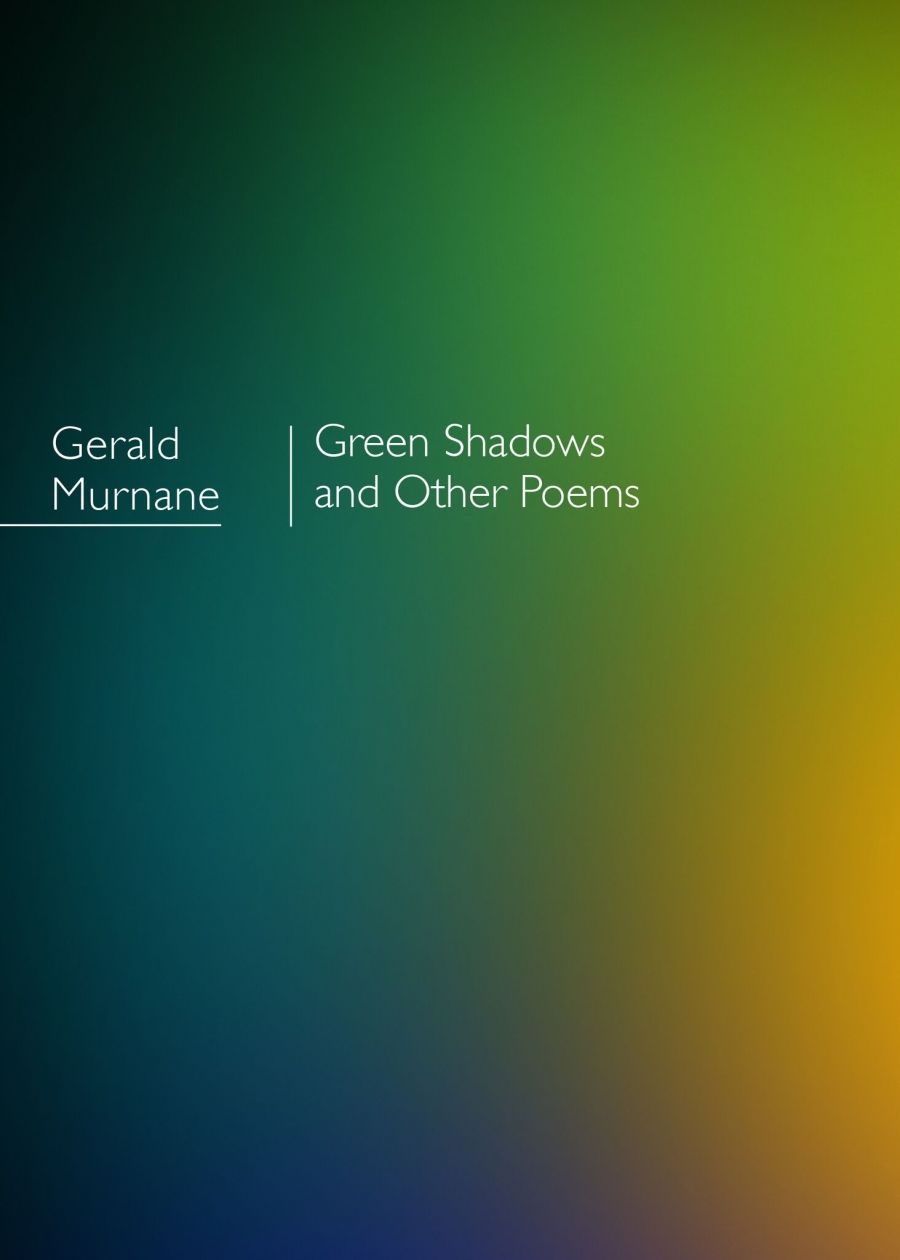
- Free Article: No
- Contents Category: Poetry
- Custom Article Title: Geoff Page reviews <em>Green Shadows and Other Poems</em> by Gerald Murnane
- Review Article: Yes
- Online Only: No
- Custom Highlight Text:
There has been a long and often troubled history of poets writing novels and novelists writing poetry. The skills needed are very different and equally hard to learn. Few writers have made equal careers in both. If they do, it’s usually the novels that receive most attention ...
- Book 1 Title: Green Shadows and Other Poems
- Book 1 Biblio: Giramondo, $24 pb, 104 pp, 9781925336986
In an author’s note supplied by the publisher, Murnane recalls that he wrote ‘only poetry’ till his mid-twenties, with little success. With the publication of his first novel, Tamarisk Row (1974), Murnane ‘felt more confident explaining [him]self in sentences than in poetic forms’ and essentially gave up on poetry – until one day in October 2014 when he ‘sat at the kitchen bench and spent no more than ten minutes composing the first poem in Green Shadows’.
The poem, short enough to quote in full, is a kind of miniature indication of the approach taken elsewhere – i.e. loosely formal (with much use of half rhyme), relatively simple diction (with sardonic or humorous overtones), and a significant autobiographical or confessional dimension. It’s called ‘If this is a poem’:
If this is a poem –
I mean, if Lesbia Harford
might not disown
it or Thomas Hardymight read it through,
then I’ve somehow betrayed
or never knew
my true vocation.
Of course, it’s ironic. Murnane has already more than fulfilled his ‘true vocation’ by producing the novels that have been praised by admirers and ignored by quite a few others (The New York Times once called him ‘the greatest English-language writer most people have never heard of’). In ‘Last Poem’, Murnane nicely encapsulates the situation by concluding that it ‘tells how // for sixty years, I wrote / about only what mattered most / to me, and whether or not / my stuff was read, and then stopped’.
It has to said that Green Shadows and Other Poems is nearly always entertaining and often moving – an important criterion for Murnane. As he says in ‘The Darkling Thrush’, ‘I esteem / above all poems or passages of prose / those that put a lump in the throat.’ This may come as a surprise to readers who have felt defeated by the complexity of Murnane’s prose, but it’s certainly true of the majority of the poems here. At times, as in the first poem quoted, these emotions arise from tributes, either in passing or in whole poems, to poets he admires – Hardy (clearly), John Clare, Lesbia Harford, Philip Larkin, William Carlos Williams. It’s a diverse list, but it makes sense as one reads the poems.
 Gerald Murnane (photograph via Text Publishing)
Gerald Murnane (photograph via Text Publishing)
Other important sources of emotion include memories from childhood and more recent experiences as a widower in the small town of Goroke in western Victoria. Some of these feelings derive from a recurrent sense of shyness and/or inadequacy. In ‘Pettit’s Tap’, for instance, he courageously admits to having been one of those who bullied a hapless family of primary school children by forcing them to drink from one tap only and not from any other. In the context of praising a friend, Brody Gray, for asking a bully ‘how it felt to bring to tears / his weakling victim’, the poet admits ‘It was no satisfaction / for me alone to react. I called // in the Mob. They had their usual fun. / Len blubbered as usual, and I was proud / to be with the majority …’
This not-always-comfortable honesty is seen in other poems. Conversely, there are things of which Murnane is certain and for which he doesn’t apologise. His famous reluctance to travel outside his home state is one of them, best expressed in the poem ‘Non-travelling’. At the end of it, he points out that we ‘stickers-in-the-mud … see not sights but the very thing we’d all // like to see. I’d call it the Real / or the True or the Ultimate, even though I, a noted / non-traveller, have not yet had it reveal / itself while I’ve stood my ground and kept my eyes open.’
As these excerpts demonstrate, Murnane’s way with metre and rhyme is approximate rather than expert. His sustained use of half-rhyme is impressive though perhaps destabilised by the occasional full rhyme. Sometimes, as in this stanza from ‘The Ballad of R.T.M’, the metre, a mix of anapaestic and iambic, slips out of control: ‘But if he made little impression on girls, / he had much more success / with men who mattered. At Caulfield one day, / the Victorian Chief Secretary … ’
Despite such ‘turf-defending’ reservations, Green Shadows and Other Poems, with its abundant humour, irony, and genuine feeling, is definitely worth reading. It may also cause some of Murnane’s worldwide fiction followers to tweak the more arcane of their theories.


Comments powered by CComment